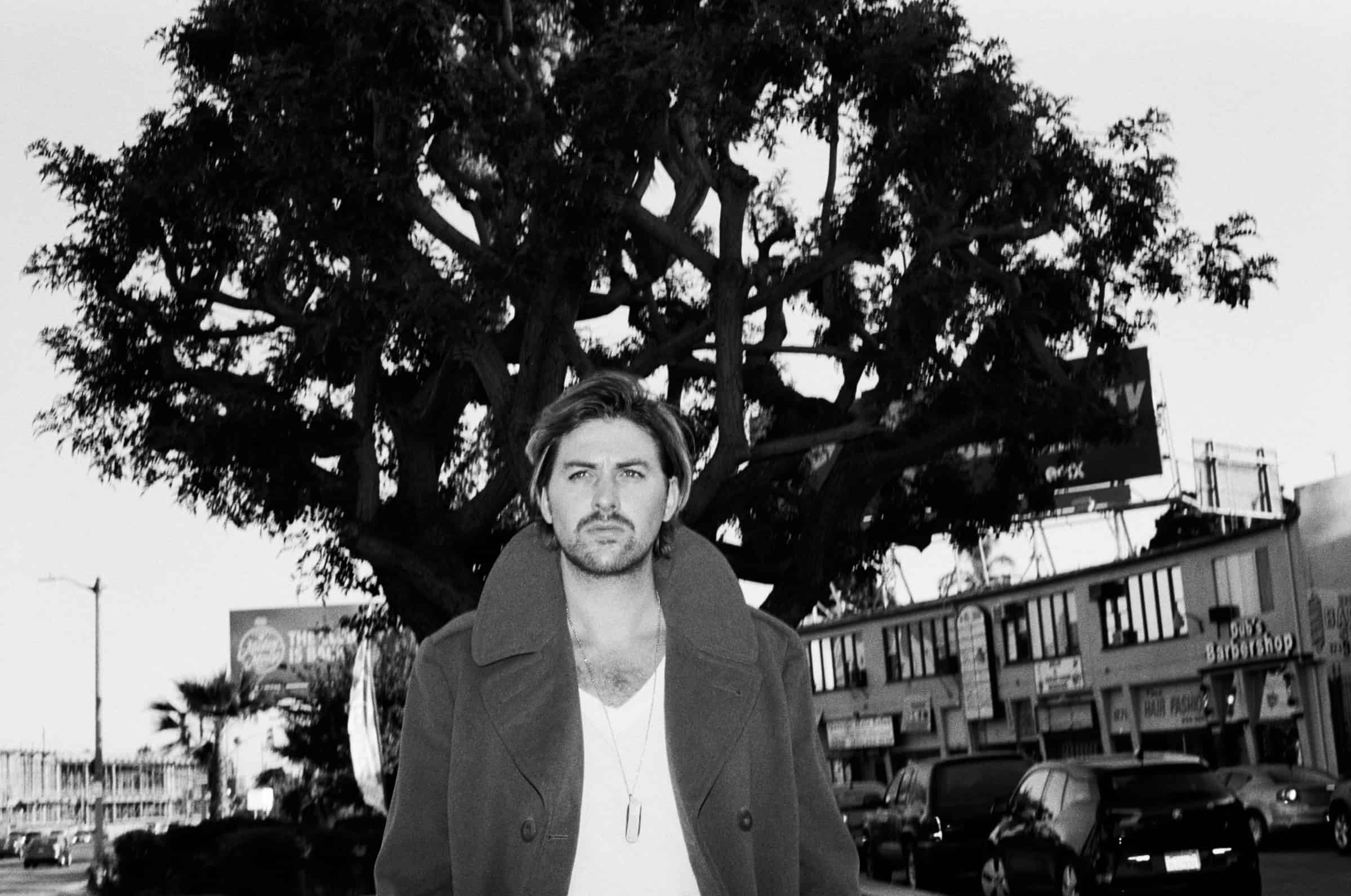The UK-born blues singer-songwriter headlined a show at New York’s Mercury Lounge last Thursday ahead of his five-city tour with Kodaline.
Jamie surveys the crowd briefly and asks a question. “Is any called Caroline?” The crowd mutters. No, or Caroline’s too shy to say anything. He’s playing the Mercury Lounge, the first venue he ever played in the United States. “Hallowed ground” as he calls it.
Unfazed, Jamie asks “Does anyone want to be Caroline?” with a sly smile. A hand goes up. She’s dubbed “fake Caroline” and Jamie begins the song (“Caroline,” released in 2013) on guitar alongside his pianist Jeff. They run through the intro, a simple but winning chord progression played with the smooth habit of muscle memory. Jamie’s cue to start the first verse rolls around. He stops and turns to Jeff. “What’s the first line of this song again?”
It’s a charming gaffe and we let it slide past without comment. The crowd, ranging from giggly 20-something women to older couples nearing retirement age, looks at Jamie with the same kind smile. They love him, not just because he’s on stage to entertain, but because there’s something endearing in his seeming simplicity, something human. That can be hard to find in an onstage persona.
Much of Jamie’s music follows a similar formula. Rooted firmly in American blues tradition, his lyrics and instrumentals are straightforward and familiar.
While this image of simplicity is convincing, there’s a little more to it than that. First, despite his bluesy Americanized voice, Jamie was born in the UK. He formed his musical grooves when his family moved to Chicago, staying there for most of his formative childhood years.
His music is also more far-reaching than you might expect. You might have heard his music in season four of Game of Thrones, or in the title track of the film Skyscraper starring Dwayne “The Rock” Johnson, or in a variety of advertisements for the likes of Beats by Dre and Sam Adams. He also co-wrote “Hold Me While You Wait” for Scottish singer-songwriter Lewis Capaldi’s debut album, and was the first artist to sign onto the 2019 remake of Soul Asylum’s “Runaway Train,” part of a campaign for the National Center for Missing & Exploited Children.
“What I’ve realized along the way is that writing music is the fun part,” he says. “Getting to do that for a living is still completely crazy. Having solo stuff, doing some adverts for TV and film, and also what I’ve probably been most successful at last year is writing for people – it’s three very different muscles to stretch. It’s what you need to do.”
The breadth of Jamie’s work demonstrates his love of the craft and curiosity for the myriad ways we engage with music beyond a stage and an audience.
His current Fever Dreams project, a series of singles leading up to the release of his Fever Dreams EP on August 9th are similarly varied, featuring more production and 80s pop affect than the dark, smoky rawness of his early work. Ever mindful of his audience, Jamie created three different versions of each song. There’s the original, a remix, and an acoustic version. Simple and charming as his stage persona may be, Jamie puts a lot of thought into his work and into how it’s consumed.
“I suppose I was bringing in some of my audience which enjoys the acoustic stuff more, and also people like hearing stripped back versions of things,” he muses. “And this side project thing, this Fever Dreams thing was very production heavy and there’s a lot going on for the most part, so it was to have a version of those to basically say that this is a very good song in its stripped back form. Even though there’s loads of fireworks going on on the main version, there’s a skeleton that also works. And then the remixing I guess was another way to enjoy the song.” He pauses briefly before adding, “On a more cynical level, a way to hopefully slide onto a few more playlists, since that is really the new radio, the new gateway into things.”
Though his upcoming EP promises a “fun trip into the 80s,” Jamie has an obvious love for minimalism and authenticity. Despite the fun he’s had with Fever Dreams, he seems excited to return to his blues singer-songwriter core. Onstage at the Mercury Lounge he talks and jokes with the crowd, showering compliments on his bandmate, humbling himself: “If it’s not working…it’s usually me, Jeff’s very good” he says with a laugh. It’s just the two of them onstage, with the occasional piano effect tossed in. His set list features a range of his music over the years, all stripped back to their fundamentals. It’s not glossy or hardcore or neatly packaged, but perhaps something even more daring. A person standing on a stage with a guitar willing to make mistakes and look human.
“I think that live acoustic thing is still exciting for people because that’s something you can’t really fake. There’s a realness to it,” he says. “You can hear what’s going on – some piano and a voice and a good song. It’s so easy to make a really nice production now, a big sounding production, but it’s still really fucking hard to sing a very good well-written song.”
To keep up with Jamie’s latest releases and tour dates, check out his website!

